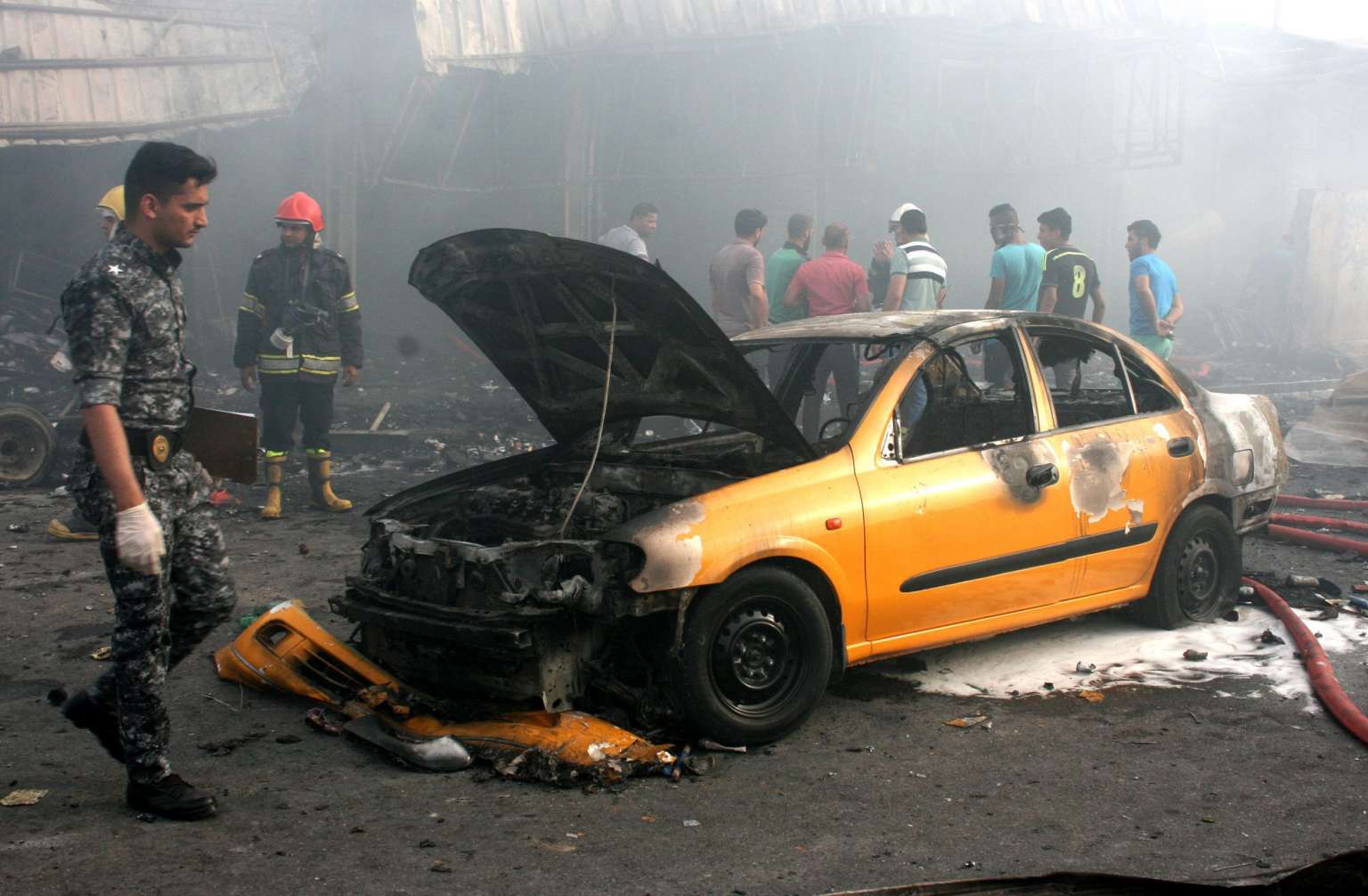ISIS suicide bomber hits Baghdad shops, killing seven; fighting erupts in northern Iraq
Sign up now: Get ST's newsletters delivered to your inbox

An Iraqi policeman inspects the site of a suicide bomb attack in eastern Baghdad on Monday (April 25).
PHOTO: EPA
BAGHDAD (AFP) - A suicide bombing claimed by the Islamic State in Iraq and Syria terror group ripped through shops in eastern Baghdad on Monday, killing at least seven people, Iraqi security and medical officials said.
The blast in the Shiite majority area of Baghdad Jadida also wounded at least 32 people, started fires in some shops and scattered debris across the street.
White smoke poured from a series of shops that sold perfume, and the partially burned remains of a car sat in the street nearby.
ISIS issued a statement claiming the attack.
ISIS frequently carries out suicide bombings in Iraq, both as part of military operations and targeting civilians.
The terrorist group overran large areas north and west of Baghdad in 2014, although Iraqi forces have since regained significant ground from ISIS.
The group still controls a large part of western Iraq, and it carries out frequent bombings in government-held areas.
In northern Iraq, artillery fire killed a civilian on Monday despite a ceasefire in a flashpoint town that has been hit by deadly fighting between Kurdish and Turkmen forces, officials said.
Fighting broke out at the weekend in Tuz Khurmatu between the autonomous Kurdish region's peshmerga forces and Turkmen members of the Hashed al-Shaabi militia umbrella organisation for the second time in six months.
"Clashes were renewed sporadically in Tuz, but it was not like yesterday," said Mohammed Koja, the deputy governor of Salaheddin province where the town is located.
Koja said that mortar rounds and rocket fire had killed one person and wounded four.
A police colonel confirmed the toll but it was unclear which side killed the civilian.
The initial clashes between Turkmen and Kurdish forces began at around midnight Saturday and continued into Sunday.
Hadi al-Ameri, the commander of the Badr militia, announced at a press conference on Sunday afternoon that a ceasefire deal had been reached.
But a witness in the town said gunfire and periodic explosions could still be heard.
Prime Minister Haider al-Abadi ordered the Joint Operations Command to take "all necessary measures" to end the clashes, a statement from his office said.
And he urged the leaders of the forces involved to "focus efforts against the common terrorist enemy represented by the Daesh gangs", the statement said, using an Arabic acronym for ISIS.
Both the peshmerga and the Turkmen fighters are battling ISIS.
But Kurdish forces and the Hashed al-Shaabi are vying for influence in some areas, a contest that has led to violence in Tuz Khurmatu.
The latest fighting came after unrest in Tuz Khurmatu last November that began as a dispute at a checkpoint escalated into clashes inside the town.
Dozens of homes were burned, and the town has been split between Kurdish and Turkmen areas, with neighbourhood minority residents moving back across the ethnic divide.
Baghdad turned to the Hashed al-Shaabi, which is dominated by Iran-backed Shiite militias, to help stem the extremists' 2014 advance and later push them back.
Kurdish forces also battled the extremists in the north, but have largely fought independently of federal troops.


